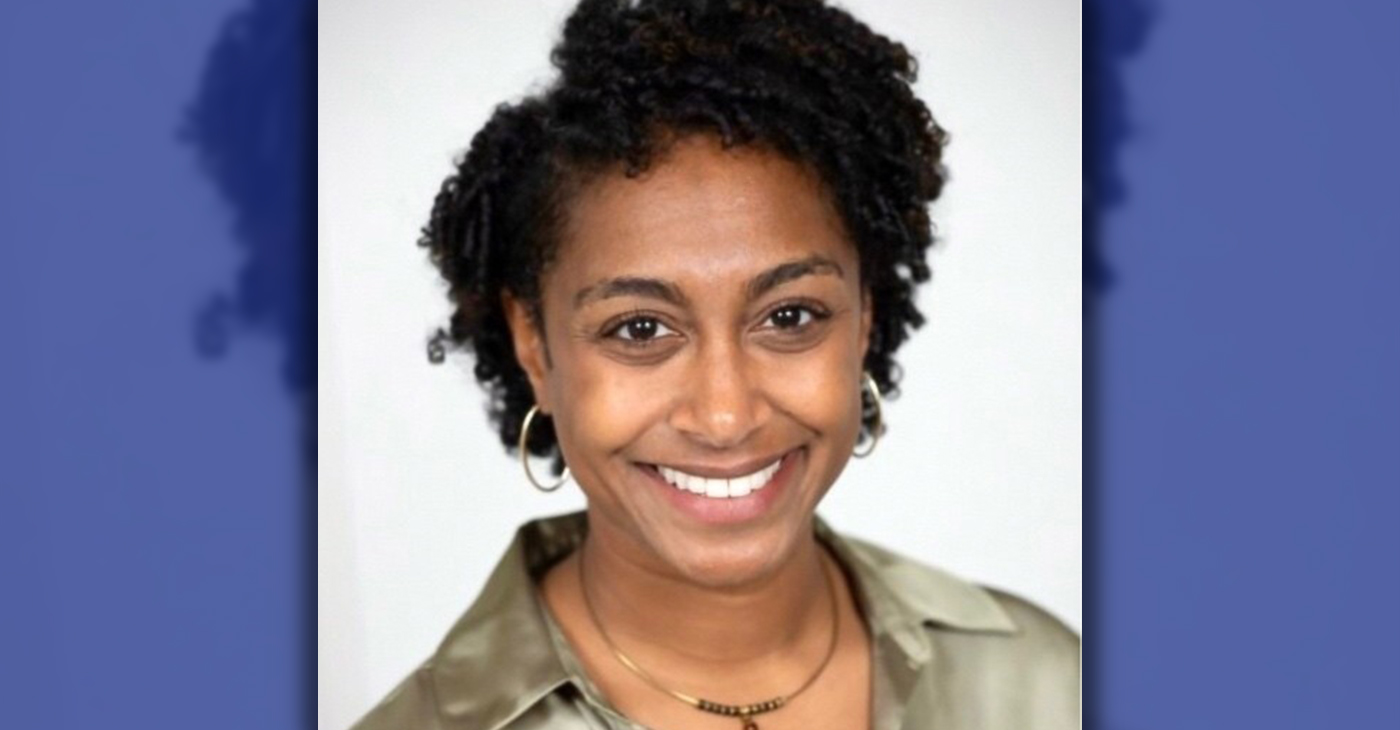Bay Area
Five New California Laws Black People Should Care About in 2024
Among other important pieces of recently passed legislation, a new law ensures that California workers will accrue paid sick time earlier in their employment tenure after starting a new job. The law requires that employers give their employees no less than 24 hours or three days of paid sick leave within about four months of their start date and no less than 40 hours or five days within about seven months of their start date.

By Brandon Patterson
In 2024, a total of 16 new laws will go into effect in California – passed this year and in years past – with some taking effect on January 1 and others later in the year. Of those laws, namely dealing with employment and economic justice, housing, and guns – may have important implications for Black Californians. Here is a summary of five new laws that Black residents could pay attention to.
Minimum wages for fast food and healthcare workers: Hundreds of thousands of employees at all healthcare facilities across the state will start earning a minimum of $21/hour starting June 1, with employees at some facilities paid more depending on various factors. Large healthcare systems and dialysis clinics with more than 10,000 full-time employees will have to pay workers $23/hour, for example, with increases to $24 and $25 in 2025 and 2026. Meanwhile, the minimum wage for fast food workers will increase to $20/hour starting in April and increase by up to 3.5% annually through 2029.
More paid sick leave: A new law ensures that California workers will accrue paid sick time earlier in their employment tenure after starting a new job. The law requires that employers give their employees no less than 24 hours or three days of paid sick leave within about four months of their start date and no less than 40 hours or five days within about seven months of their start date.
Job protections for cannabis users: A law originally passed in 2022 and taking effect on January 1, 2024, will make it illegal for employers to discriminate against or penalize employees for legal cannabis use while off the job, though workers can still be penalized for coming to work high. That law also requires employers who choose to drug test only to use tests that detect THC – the active compound in cannabis — versus inactive compounds that can remain in one’s system for weeks or even months after use. A second law will prevent employers from asking job applicants about past cannabis use in most circumstances.
Cap on security deposits: Under AB12, which takes effect on July 1, 2024, property owners will only be allowed to charge tenants up to the equivalent of one month’s rent as a security deposit, reducing what can be a major obstacle for many renters. Security deposits can equal up to two months’ rent for unfurnished units and three months for furnished units.
Concealed carry: SB 42, set to take effect on January 1, 2024, would raise the age at which residents can carry a concealed weapon from 18 to 21 and prohibit their carry in “sensitive places” like schools, parks, playgrounds, and banks. The law was passed in response to a Supreme Court ruling that struck down a New York law that required people to show a particular need for self-defense to carry a concealed weapon. California previously enforced a similar law. A lawsuit challenging SB 42 and asking a court to block the law from taking effect is currently pending before a federal judge in Santa Ana. The lawsuit could impact the law’s implementation.
Activism
Oakland Post: Week of January 1 – 7, 2025
The printed Weekly Edition of the Oakland Post: Week of January 1 – 7, 2025

To enlarge your view of this issue, use the slider, magnifying glass icon or full page icon in the lower right corner of the browser window.
Activism
Let’s Talk Health: Empowering Our Community with Health Literacy
At Covered California, we recognize that understanding health insurance is more than just choosing a plan –it’s about having the knowledge to make informed decisions that lead to healthier lives. That’s why this year’s open enrollment campaign, “Let’s Talk Health,” focuses on breaking down barriers and simplifying the complex language of health care.

By Dr. Monica Soni
Navigating health insurance can often feel overwhelming, especially for individuals and families who are new to the system or unsure about their options.
At Covered California, we recognize that understanding health insurance is more than just choosing a plan –it’s about having the knowledge to make informed decisions that lead to healthier lives. That’s why this year’s open enrollment campaign, “Let’s Talk Health,” focuses on breaking down barriers and simplifying the complex language of health care.
Health literacy is critical for achieving better outcomes, reducing disparities, and ensuring every African American and Black Californian — regardless of their income, ethnicity, or background — has access to quality care. By making health insurance simpler to understand, we empower individuals to access preventive services, manage chronic conditions, and avoid costly medical bills.
Breaking Barriers in African American and Black Communities
This year, “Let’s Talk Health” places a special focus on supporting African American and Black communities, where systemic inequities in health outcomes persist. These communities often face higher rates of chronic conditions and challenges in navigating the health care system. To address these disparities, Covered California partnered with trusted organizations to provide information, tips and resources.
In San Francisco, Andre Atkins, Director of Programs at Rafiki Coalition, led a dialogue with Dr. Kim Rhoads, Community Engagement Director at UCSF Helen Diller Family Comprehensive Cancer Center; Destiny Williams, Health and Wellness Program Manager at Rafiki Coalition; and myself.
These conversations play a vital role in the pursuit of health equity by sharing power and creating spaces where our community can learn, share experiences, ask questions and connect with advocates who work daily to understand their unique needs. Through these efforts, we reaffirm our dedication to fostering equity and inclusion in health care, ensuring that every voice is heard and supported.
Why Health Literacy Matters
Health literacy goes beyond understanding health care terms. It’s about empowerment. It equips individuals to make informed decisions, from choosing the right health plan to finding a provider to deliver preventive care and seeking mental health services. At Covered California, we provide tools and resources, such as side-by-side plan comparisons and financial assistance details, to ensure everyone can navigate their options confidently and access the care they need.
Taking the First Step
Whether you’re a student, part-time worker, family of four, open enrollment is your opportunity to prioritize your health and your future. This year’s open enrollment period runs from Nov. 1, 2024, to Jan. 31, 2025, and we’re here to assist you every step of the way.
Consumers must select a health plan by the Dec. 31 to receive coverage for the entire year, starting Jan. 1, 2025.
To find the plan that’s right for you, and take the first step toward a healthier tomorrow, visit CoveredCA.com and fill out the application yourself or put in your ZIP code and connect with a certified agent in your neighborhood who can guide you through your options. Together, we can break down barriers and ensure that all Californians have the tools to thrive.
Dr. Monica Soni, MD, is the Chief Medical Officer for Covered California, where she leads efforts in health equity, quality transformation, and clinical innovation. As a practicing board-certified internal medicine physician and health care leader with over a decade of experience, Dr. Soni is committed to improving affordability, access, and outcomes for all Californians.
Activism
OPINION: Solutions to the Housing Crisis Exist, but Governments Waste Tax Dollars Instead
People who are homeless want real housing, not temporary shelters that are dangerous and crowded. The City of Oakland has been telling the public that the sweeps of encampments are an effective solution, but it just pushes people from block to block, wasting tax money on paying police officers overtime in a budget crisis. This is true at the state level too, where California spends $42,000 per person that is unhoused per year. The city and state could just help pay residents’ rent, rather than pay for police to harass people on the streets, many of whom have disabilities or are elders.

By Kimberly King and Victoria King
In a powerful demonstration of grassroots organizing, activists joined forces in direct action that started on Dec. 17 to call for the establishment of sanctuary communities across the West Coast
The goal of the effort is to raise awareness about misleading narratives around homelessness and to present concrete solutions to a crisis that leaves over 35,000 people unsheltered each night in the Bay Area.
The action, led by members of Oakland’s Wood Street Commons and Homefullness/Poor Magazine, represents a direct response to the U.S. Supreme Court and Gov. Gavin Newsom’s approach to homelessness. At the core of the movement is a fundamental truth: housing is a human right, not a commodity to be bought and sold for profit.
People who are homeless want real housing, not temporary shelters that are dangerous and crowded. The City of Oakland has been telling the public that the sweeps of encampments are an effective solution, but it just pushes people from block to block, wasting tax money on paying police officers overtime in a budget crisis. This is true at the state level too, where California spends $42,000 per person that is unhoused per year. The city and state could just help pay residents’ rent, rather than pay for police to harass people on the streets, many of whom have disabilities or are elders.
The coalition of organizations, led by people with lived experience of homelessness, coordinated their efforts to show the unity behind this movement, including setting up sweeps-free sanctuary communities and resource centers and presenting solutions to city council. The message is clear: unhoused residents refuse to remain invisible in the face of policies that have resulted in 347 deaths for people experiencing homelessness in Alameda County just this year alone.
The coalition presented four key demands, each addressing different aspects of the housing crisis. First, they called for the establishment of sanctuary communities instead of sweeps, urging the redirection of encampment management funds toward positive solutions like encampment upgrades and permanent low to no-income housing.
The second demand focuses on utilizing public land for public good, specifically identifying vacant properties like the Hilton Hotel on Port of Oakland land. The coalition emphasized the immediate availability of these spaces to house hundreds of currently unhoused residents.
Prevention forms the third pillar of the coalition’s demands, with calls for strengthened renter’s rights, rent subsidies, and a permanent moratorium on rental evictions and foreclosures for non-payment.
Finally, the coalition demands the defunding of coercive “Care Courts,” advocating instead for non-carceral approaches to mental health care and harm reduction.
The Poor People’s Campaign’s motto, “When we lift from the bottom, no one gets left behind,” encapsulates the spirit of the action. Daily activities, including opening prayers for those who have died while homeless, served as powerful reminders of the human cost of failed housing policies that treat housing as a commodity rather than a fundamental right.
As this crisis continues to unfold, these activist groups have made it clear that the solution to homelessness must come from those most directly affected by it.
About the Authors
Kimberly King and Victoria King are Oakland Residents who advocate for the unhoused and propose solutions to end homelessness and housing insecurity.
-

 Activism2 weeks ago
Activism2 weeks agoBooks for Ghana
-

 Activism3 weeks ago
Activism3 weeks agoPost News Group to Host Second Town Hall on Racism, Hate Crimes
-

 Activism3 weeks ago
Activism3 weeks agoButler, Lee Celebrate Passage of Bill to Honor Congresswoman Shirley Chisholm with Congressional Gold Medal
-

 Arts and Culture2 weeks ago
Arts and Culture2 weeks agoPromise Marks Performs Songs of Etta James in One-Woman Show, “A Sunday Kind of Love” at the Black Repertory Theater in Berkeley
-

 Activism3 weeks ago
Activism3 weeks agoDelta Sigma Theta Alumnae Chapters Host World AIDS Day Event
-

 Activism2 weeks ago
Activism2 weeks ago‘Donald Trump Is Not a God:’ Rep. Bennie Thompson Blasts Trump’s Call to Jail Him
-

 Business3 weeks ago
Business3 weeks agoLandlords Are Using AI to Raise Rents — And California Cities Are Leading the Pushback
-

 Activism3 weeks ago
Activism3 weeks agoOakland Post: Week of December 11 – 17, 2024


















































